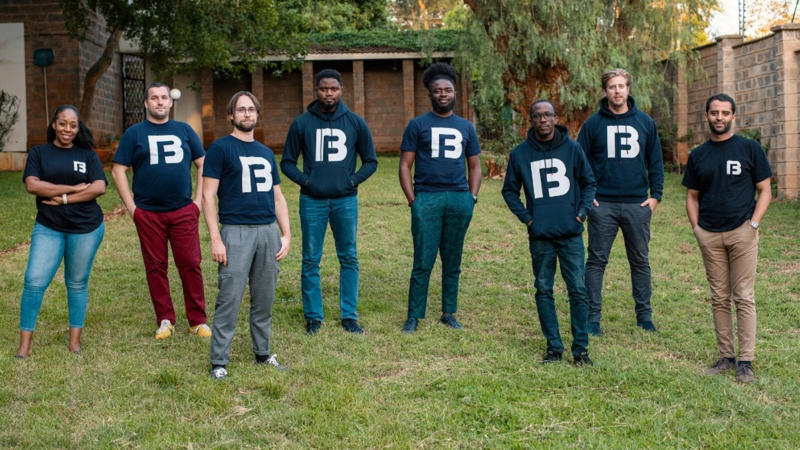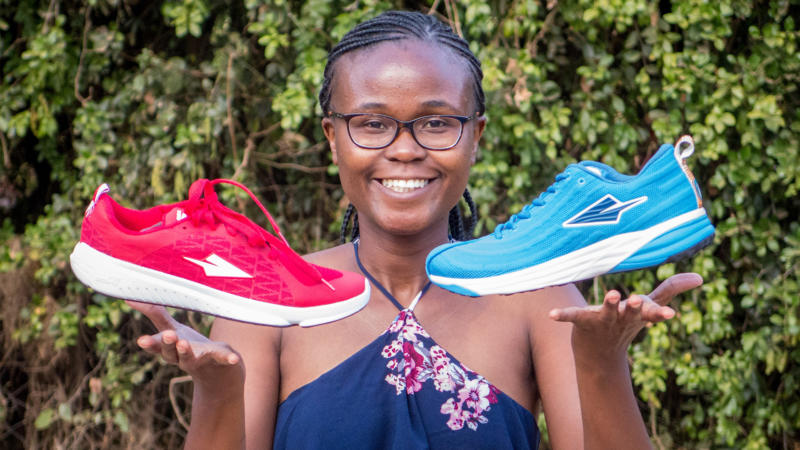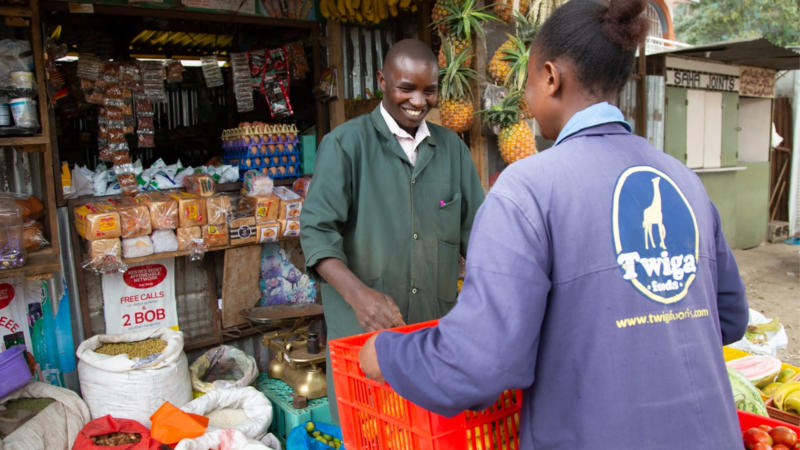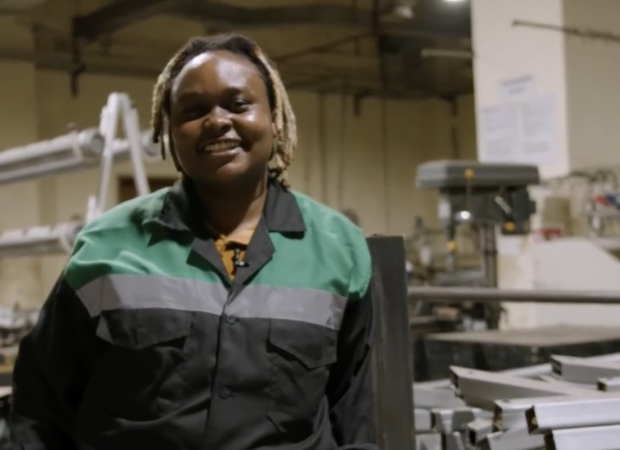All results


Spring is upon us, but most areas are still experiencing some remnants of winter weather. So until the environment settles, keeping your favorite jacket, scarf, and gloves handy is a good practice. But what if your garment pieces could communicate how you feel and what you need during those more frigid moments? Kenyan inventor Roy Allela answered that question and provided an accessibility solution with his smart gloves. Allela is the brain behind Sign-IO, smart gloves that give the hearing impaired and deaf the ability to communicate with people who don’t know sign language.

Nigerian fintech startup Bfree is starting the year by celebrating a $1.7 million pre-Series A funding round, according to TechCrunch. Participating investors include 4Di Capital, Octerra Capital, VestedWorld, Voltron Capital, Logos Ventures, and angel investors. The outlet also reports that $2.5 million has been raised in total, including $800,000 raised in May 2021. The funds will expand Bfree into additional markets outside its current home in Nigeria and Kenya. The company plans to enter 16 markets in Ghana, India, Uganda, Brazil, Colombia, Mexico, Russia, Poland, Pakistan, and Indonesia. “We are going into markets with large populations, credit deepening and an underdeveloped regulatory environment, where a behavioral collection approach is likely to work,” Bfree co-founder and CEO Julian Flosbach said, according to TechCrunch.

Being the first to create a new company with no prior experience under your belt can be an intimidating venture. Nonetheless, the long-lasting impact behind the purpose for Navalayo Osembo’s revolutionary idea overshadowed any deterrent the challenge could throw her way. Courtesy of Enda The Kenyan native is the co-founder and CEO of Enda, Africa’s first running shoe company. Kenya is widely known for producing the world’s greatest runners and now, the shoe brand is putting on for its record-breaking talent. The pioneering company is helping to put the country further on the map and its success is a testament to what African talent can achieve. “I think the biggest thing has been changing what people believe is possible. I talk to other entrepreneurs all the time who are following the path that we’ve created in dreaming that global brands can be born in Africa,” Osembo told AfroTech. While Enda is putting a spotlight on Kenyan culture’s influence, it is also aiding in the economic...

Since Twiga Foods’ launch in 2014, the startup has been using technology to build more efficient supply chains in food and retail distribution in Kenya. With the announcement of their latest funding, the company aims to take their mission across the African continent. Twiga Foods raised $50 million on Nov. 1 in a Series C round, TechCrunch reports. The round was led by private equity firm Creadev and majority of the participants from their previous Series B round invested in Twiga. New investors included OP Finnfund Global and Endeavor Catalyst Fund. “We are deeply convinced in Twiga’s potential to revolutionize informal retail across Sub-Saharan Africa, ” said Pierre Fauvet, Africa director at Creadev, in a statement. “Tapping into a $77 billion urban market on the continent, Twiga has gained significant traction since inception, leveraging on technology to optimize the food supply chain in African cities and constantly innovating to better tackle logistics, commercial, social and...

Netflix continues to set the bar for streaming platforms worldwide. According to reports from TechCrunch, the leading streaming service will launch a free mobile plan in Kenya in an effort to further tap into the market. “If you’ve never watched Netflix before – and many people in Kenya haven’t – this is a great way to experience our service,” said Cathy Conk, Director of Product Innovation at Netflix in a blog post. “And if you like what you see, it’s easy to upgrade to one of our paid plans so you can enjoy our full catalog on your TV or laptop as well.” Available in more than 190 countries, Netflix is not shy when it comes to experimenting with various plans for its users. As a way to lure in more customers, the company has tried almost everything — from offering a $3 mobile-only plan in India in 2018 to offering its service for free through trials in various markets. For the past few years, Netflix has expanded its content to be more inclusive of African cultures through its...

Alfluence, a Kenya-based influencer marketing platform, has announced that it has secured $1 million in seed funding. TechCrunch is reporting that the company, which was founded by Nelson Aseka, George Issaias, Lamusia Anzaya, and Ankit Jindal in 2019, had the funding led by the Dubai-based company EQ2 Ventures. Other investors include Antler East Africa, Oui Capital, ArabyAds, and an unnamed European family office. “We are at the cusp of a revolution. Globally the way marketing works is changing. We find ourselves at an intersection of advanced technology and the fastest-growing region in the world in terms of digital and social media penetration. It’s an exciting place to be. Africa’s rich tradition for storytelling is alive and kicking,” said Aseka, the CEO of Alfluence, in a statement made to TechCrunch. “People are the new media in today’s digital world, and AIfluence is uniquely positioned to turn this reality into tangible results for advertisers. We’ve been impressed by the...

Kune, a Kenyan startup, has landed itself in some hot water. “After three days of coming into Kenya, I asked where I can get great food at a cheap price, and everybody tell me (sic) it’s impossible,” Robin Reecht told TechCrunch. “It’s impossible because either you go to the street and you eat street food, which is really cheap but with not-so-good quality, or you order on Uber Eats, Glovo or Jumia, where you get quality but you have to pay at least $10.” This, he said, prompted him to found Kune, a ready-to-eat meals service similar to Dinnerly. Though the company was only founded six months ago, it managed to land $1 million in pre-seed funding. This interesting confluence of events led to Kenyans taking to Twitter to air their issues out with the whole ordeal. For one, Kenyans believe the founder is attempting to solve an issue that simply does not exist. It also didn’t help that Reecht got funding in such a short period of time when it’s been proven again and again that Black...

This Kenyan entrepreneur is the brains behind the company that transforms plastic waste into bricks that are built to last. According to Black Business, Nzambi Matee is a materials engineer and founder of Gjenge Makers. After being frustrated by the government’s actions or lack thereof, with the issue of plastic pollution, Matee took matters into her own hands. “I was tired of being on the sidelines,” said Matee in an interview with Reuters. Since 2018, Gjenge Makers has processed various types of plastic waste like high-density polyethylene, used in shampoo and milk bottles; polypropylene, used for flip-top lids, buckets, and rope; and low-density polyethylene, used as bags for sandwiches or cereals into durable bricks that are just as good as those that are made from concrete. The only material that she does not work with is polyethylene terephthalate or PET, which is commonly used for plastic bottles. Not only has she managed to turn waste into something good, but Matee also used...